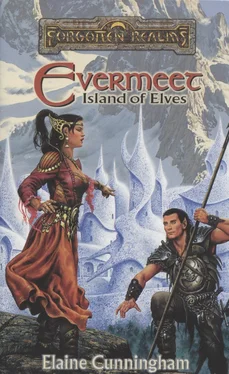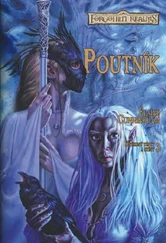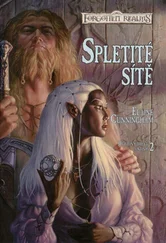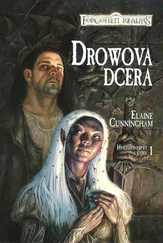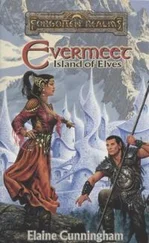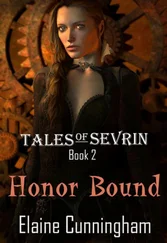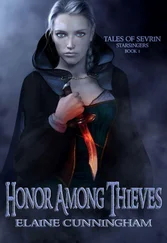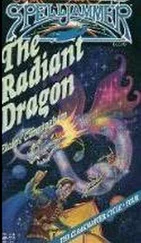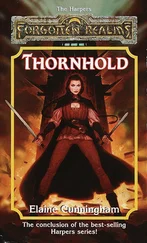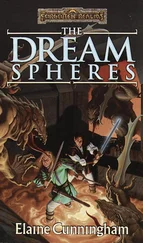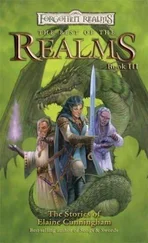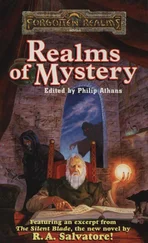Elaine Cunningham - Evermeet - Island of Elves
Здесь есть возможность читать онлайн «Elaine Cunningham - Evermeet - Island of Elves» весь текст электронной книги совершенно бесплатно (целиком полную версию без сокращений). В некоторых случаях можно слушать аудио, скачать через торрент в формате fb2 и присутствует краткое содержание. Жанр: Фэнтези, на английском языке. Описание произведения, (предисловие) а так же отзывы посетителей доступны на портале библиотеки ЛибКат.
- Название:Evermeet: Island of Elves
- Автор:
- Жанр:
- Год:неизвестен
- ISBN:нет данных
- Рейтинг книги:4 / 5. Голосов: 1
-
Избранное:Добавить в избранное
- Отзывы:
-
Ваша оценка:
- 80
- 1
- 2
- 3
- 4
- 5
Evermeet: Island of Elves: краткое содержание, описание и аннотация
Предлагаем к чтению аннотацию, описание, краткое содержание или предисловие (зависит от того, что написал сам автор книги «Evermeet: Island of Elves»). Если вы не нашли необходимую информацию о книге — напишите в комментариях, мы постараемся отыскать её.
Evermeet: Island of Elves — читать онлайн бесплатно полную книгу (весь текст) целиком
Ниже представлен текст книги, разбитый по страницам. Система сохранения места последней прочитанной страницы, позволяет с удобством читать онлайн бесплатно книгу «Evermeet: Island of Elves», без необходимости каждый раз заново искать на чём Вы остановились. Поставьте закладку, и сможете в любой момент перейти на страницу, на которой закончили чтение.
Интервал:
Закладка:
It seemed to many elves that the tears of the moon-the very thing that legend credited with the birth of the elven people-might well signal their end upon Faerun. 11th day of Flamerule, 1368 DR
To Danilo Thann does Athol of Candlekeep send greetings. Reluctantly.
Very well, I read your last letter, and the one before it, and the several that preceded them. In truth, I shudder to contemplate what your bills for parchment and ink must be.
But this, I suppose, is the way it should be. If you are to do this task and do it well, you must be relentless and prolific in your pursuit of information. That does not mean, however, that you cannot be brief.
Start by sparing me your fine flourishes and your flattery. Though I doubt not your sincerity, such niceties only serve to raise my hackles. Perhaps this is because I remember all too well the times you insisted that she who named me must have been speaking with a lisp.
Be that as it may.
I regret that I cannot send you the volume you last requested. It is an ancient book, perhaps one of the five oldest in this library, and its fragile pages and bindings would not survive the trip. The best I could do was to hire a scribe to copy it for you. Enclosed herewith are some sample pages. If you are satisfied with the effort, I will engage her to complete the work. A reasonable fee for such a task would be 5,000 gold pieces-it would be considerably more, but the scribe is a first-year student.
And yes, I am still cheaper than an ugly courtesan, to coin one of your youthful gibes. Though I must admit the reason for bothering with frugality eludes me; after all, I am spending your money, not mine.
I am returning with this letter the ink powder that you sent me. Perhaps it truly does glow in the dark, but I have no desire to stand in the spot where lightning once struck me.
The excerpt from the lorebook Of Blades and Blooded Honor you requested follows.
Regards, Athol the Beardless It was the time of man.
To many elves, it seemed that the humans flourished in all things even as they, the children of Corellon, faded.
As the number of People dwindled like sands slipping through an hourglass, the humans swelled their ranks at an indecent rate. The elven communities retreated into the forests as humans spread out into every land and every clime. As High Magic became a rare and secret thing, human mages discovered ancient scrolls that enabled them to reach in their few short years of life incredible levels of power. Mighty human kingdoms had risen-and fallen. Fabled Netheril was a memory, but from its ashes magelords were rising to command the settlements and cities of the northlands. The humans pressed even into the deep forest, seeking to settle amid the ancient trees and pleasant dales that were the elves' last stronghold on Faerun.
Everywhere, contact between elves and humans was increasing. Half-elves, once rare and pitiable beings who were almost invariably the result of war crimes, were becoming almost common. As a people, the elves were not at all certain what to make of these developments, nor were they of a single mind concerning how best to deal with the ubiquitous humans. On one thing all agreed, however: Evermeet must remain sacred to the People.
Few humans knew of Evermeet. Most who heard the tales thought of the island as an elven fancy, a legendary place of wonder and beauty and harmony. But there were a few, mostly sea-going folk, who had reason to know that something existed in the distant western seas. Those who ventured too far into the sunset were met by terrible storms, bands of warlike Sea elves, and magical barriers of all kinds. These hearty men-those few who survived these encounters-began to speak more often of the rich island kingdom in the sea.
The image of Evermeet that emerged was colored by the humans' experience with the elves of Faerun. The humans thought that the island, if it existed at all, was a place of serene beauty and utter harmony, where elves joined as one in their pursuit of the arts of magic and warfare, and to contemplate the wonders of sky and forest.
The truth was something rather different.
For millennia, the noble Gold elf families of Evermeet had vied for control of the ruling Council of Elders. Most often, the Durothil clan held sway, but this right was strongly contested by the Nierde, the Nimesin, and the Starym families. Nor were the Moon elven clans content to leave the positions of power and influence uncontested.
The disputes between the races and the clans never actually devolved into warfare, but the island became a warren of intrigue. Elven culture, which had once been focused upon the creation of beauty and the assurance of a strong defense, focused instead upon the art of political maneuverings. Clans vied with each other in their wealth, their forces at arms, and in the stockpiling of magical weaponry.
Predictably enough, at this time the most powerful seat of elven culture was not Evermeet at all, but the forest of Cormanthyr. As ambitious Gold elves came to realize this, many of them began to leave the island and settle in the burgeoning cities of Cormanthyr.
But even there, differences arose among these clans. The Nierde elves were generally willing to compromise with the Moon elves and the forest elves who had proceeded them. They even tolerated the insurgence of humans, halflings, and dwarves into the forest community. But the more xenophobic of the Gold clans-among others the Starym, Nimesin and Ni'Tessine-loudly proclaimed the need for isolation.
After much debate, the Elven Council of Cormanthyr opened the forest lands to human settlement. The Standing Stone was raised as a monument to peace and cooperation among the many races. That much of the story is well-known. But long before this year, a year of events so great that it became a measure by which time was reckoned, other, more secret events had occurred that were to shape the very course of the elven race.
When the long destruction of the Crown Wars had finally come to an end (about -9000 by Dale Reckoning) some elves became concerned that such a period of strife might come yet again in the long history of the elves. They were determined to do everything in their power to prevent such a disaster.
There was in Cormanthyr at this time an ancient elven seer known as Ethlando, a survivor from the ancient kingdom of Aryvandaar. He believed that this increasing division among the elves could lead to the destruction of all. Ethlando had lived long past the normal years for an elf, and was well into his second millennia of life. He was widely believed to have a special connection with the Seldarine, for the visions that were granted him proved infallible. Even in small matters, his word was greatly respected in the land. Oftentimes his opinion was sought-and followed-when arbitration between the more contentious clans was necessary.
During the years when Cormanthyr's fate was still hotly debated, Ethlando declared that Evermeet must be ruled by a single royal family-this, he claimed, was the will of the gods. The plan that he gave for the selection of this clan was so complex, so dependent upon a magic beyond the reach of mortal mages, that the Council decided that the Seldarine did indeed speak through the seer.
On one matter, though, they held firm: Ethlando insisted that only Moon elf clans could apply for this honor. But the Gold elves held sway in Cormanthyr, and the ruling class decreed that all noble clans-excepting of course the drow elves-who wished to make a claim for Evermeet's throne could do so.
Three hundred master weaponsmiths were chosen, and each was charged with creating a single sword. Though each artisan was given license in the crafting, certain things were to be constant. All were to be double-edged broadswords, and the hilt of each was to be set with a large moonstone. Of all the gems known to elves, the moonstone was the purest, most fluid conductor of magic. Yet the swordcrafters were not to imbue the weapons with any magical powers whatsoever. That, Ethlando insisted, would come when the time was right.
Читать дальшеИнтервал:
Закладка:
Похожие книги на «Evermeet: Island of Elves»
Представляем Вашему вниманию похожие книги на «Evermeet: Island of Elves» списком для выбора. Мы отобрали схожую по названию и смыслу литературу в надежде предоставить читателям больше вариантов отыскать новые, интересные, ещё непрочитанные произведения.
Обсуждение, отзывы о книге «Evermeet: Island of Elves» и просто собственные мнения читателей. Оставьте ваши комментарии, напишите, что Вы думаете о произведении, его смысле или главных героях. Укажите что конкретно понравилось, а что нет, и почему Вы так считаете.
